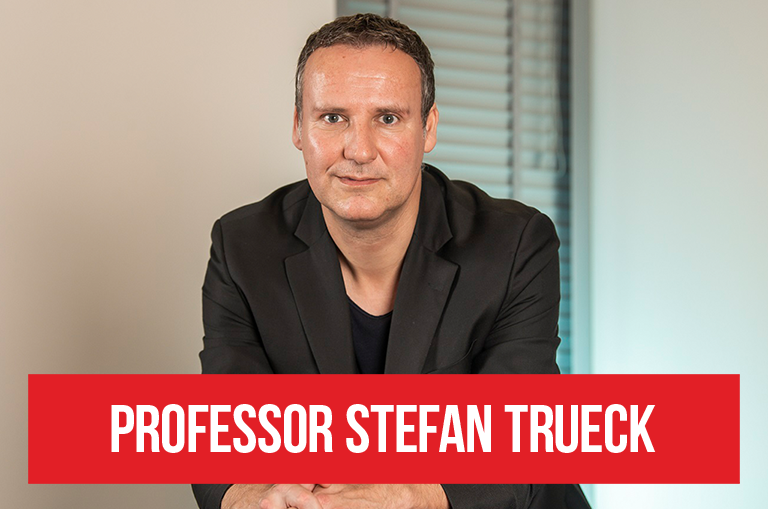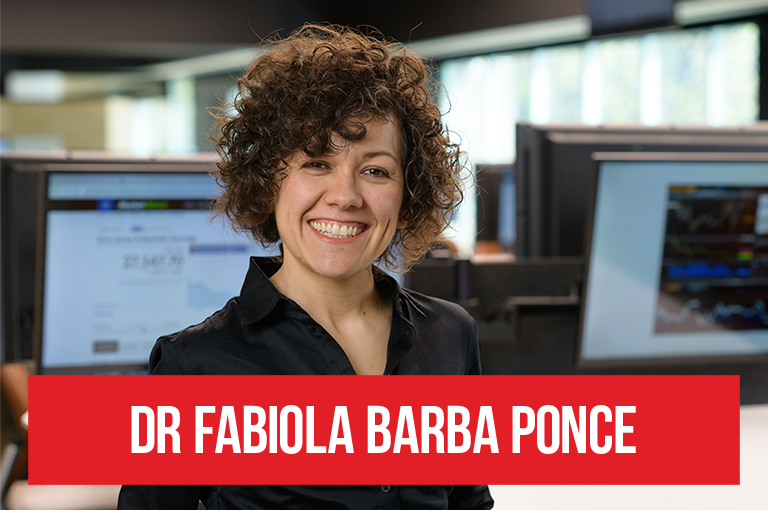An innovative collaboration between the Food Next Door Co-Op and Macquarie University Centre for Risk Analytics is changing the lives of former refugee women through mentorship and education in financial literacy, social entrepreneurship, and leadership skills via online learning.
The Food Moves Skills into Migrant Women (FMSMW) program, an initiative by Macquarie Business School, paves the way for migrant women to gain and nurture important business skills.
The two-year project – spear-headed by Dr Fabiola Barba Ponce and her colleague, Professor Stefan Trueck – received essential backing from not-for-profit and philanthropic organisations, with funding provided by the Ecstra Foundation and the Lord Mayor’s Charitable Foundation in Melbourne through the Eldon and Anne Foote Trust.
Significantly, the program was created in collaboration with the three participants who were part of the foundational pilot program.
Ambitions rooted in agriculture
“All of the women who participated in the program came from farming backgrounds and had their own farms in Africa,” Dr Barba Ponce, who has a PhD in psychology and is a research fellow at the Macquarie University Centre for Risk Analytics, says.
“They were growing food here in Australia for self-consumption but they also wanted to sell it. We knew they needed financial literacy and entrepreneurial skills. Because they come from a refugee background, we also needed to take a trauma-informed approach.”
The team established a culturally sensitive learning environment for participants, provided mentorship manuals and resources and delivered a program that included financial acumen, leadership skills, project management and social enterprise development.

Learning skills for life
To ensure the most sustainable and meaningful results, the project evolved to adapt to the specific interest of participants.
“One participant wanted to learn more about how to invest, so we adjusted the content of the program and included additional modules on making investments and buying shares,” Professor Trueck, who is a researcher in the Department of Actuarial Studies and Business Analytics and the Centre for Risk Analytics, says.

“The participants learned about budgeting and important basic concepts of financial literacy. They learned how to create any project from the ground up. They learned about mentoring and how to lead and pass on the knowledge they gained.”
To manage participants’ sensitivities around rejection and failure, kindness and compassion were critical – especially considering the women’s lived experience of fleeing war or trauma, Dr Barba Ponce told The Bursar.
“While these women are tremendously resilient, failing or getting a ‘no’ for a response is generally experienced as a bit of a detractor. We taught them a growth mindset and encouraged them to embrace being full Australian citizens of African heritage,” she says.
On the agricultural side, project partner Food Next Door – a food co-operative based in Mildura in regional Victoria – helped the participants learn about biodynamic techniques, regenerative farming and other sustainable food growing practices.
“The women all have a strong connection with the land and farming. Growing crops native to their homeland such as African eggplant, melons, snap peas, and cassava provided a sense of familiarity, crucial for their transition into a new environment,” Dr Barba Ponce says.
“They had to learn that water is a commodity in this country, and you have to pay for it, whereas in Africa, rain provides. They had to learn how arid and saline the soil is in Mildura. For Beatrice, who is in Nowra, NSW, she had to get educated that, despite wombats eating her crops, these animals are native to Australia, and so she had to come up with a safe way for the animals to not eat their crops.”
For Mazambi, the youngest of the participants, learning the concept of money – where it comes from, why it exists, and how she can make it work – was vital.
“She was unaware of this, because most of her life was spent in refugee camps where all was provided for her, so once in Australia, she had to go to a very basic level,” Dr Barba Ponce told The Bursar.
Commercially, The Co-op Federation came on board to teach them about business structures and legal requirements to sell their produce. Also, Food Next Door has a partner called Out of the Box – a weekly food box delivery membership business in Mildura that buys the women’s produce.
“You need to have familiarity when you have a lot of change, as it helps the transition process. So, the way they achieved that was through enhancing their business and leadership skills in farming and growing crops, an area they already knew well,” she says.
Despite facing challenges such as geographical distance, online delivery, as well as external crises, including floods and the loss of a participant’s spouse to COVID-19, the team persevered.
The program was delivered in English and in Swahili when they had complex financial, mentoring and farming concepts to grasp, Dr Barba Ponce told The Bursar.

“We were very patient when, in the middle of a lesson, one of the women would stop to explain it in Swahili to the rest so we could advance,” she says. “We have discovered that the farm is such a psychologically safe environment for them to trust they can use their skills and practice English at the same time, even if it is low or mixed with their native languages. Joselyne and Beatrice are born leaders and rapid learners, they just really need support for the systemic barriers to not stop their growth and empathetic supporters who understand that impact is not against financial growth.”
Making a difference
Joselyne Ntahomvukiye, who came to Australia from Burundi, began growing and selling melons in her Mildura community via social media and is excited to share her new skills with others.
“I was able to learn project planning, which gave me an opportunity to continue by myself with projects I have,” Ms Ntahomvukiye says.
“It opened many doors around my community. I am using computer skills now in my daily work. I am proud of myself when I am using the skills in the community group as a leader.”
Read more: From Syria to Southern Cross University, towards a career in forensic science
Beatrice Kabahire, who was also born in Burundi, is eager to expand what she has learned in the program to cultivate cassava – a nutty-flavoured, starchy root vegetable commonly grown in Africa.
“The program was extremely educational and focussed not only on the farming aspect but also financial literacy and computer development skills,” Ms Kabahire says. “It was a great foundation for understanding how to operate our projects efficiently and the team were supportive and assisted in every way.”
With the pilot program successfully completed, Dr Barba Ponce and Professor Trueck have now set their sights on expanding to other regions within NSW, Victoria and Queensland. Their aim is to secure additional funding that will help them enhance the program’s educational offerings and compensate the participants, who can then educate and mentor their local communities.
“This program can also be taken to other regions where farmers who have English as their second language live,” Dr Barba Ponce says.
“You can see the results in the community, you can see the transformation in the women, their confidence and how they pitch their business.
“We have the heart, the passion and the collaboration. All we need now is the funding to continue making a difference in the lives of migrants and their communities.”
*Some sections of this article were originally published by Macquarie University’s Lighthouse publication, written by Nicola Conville.








